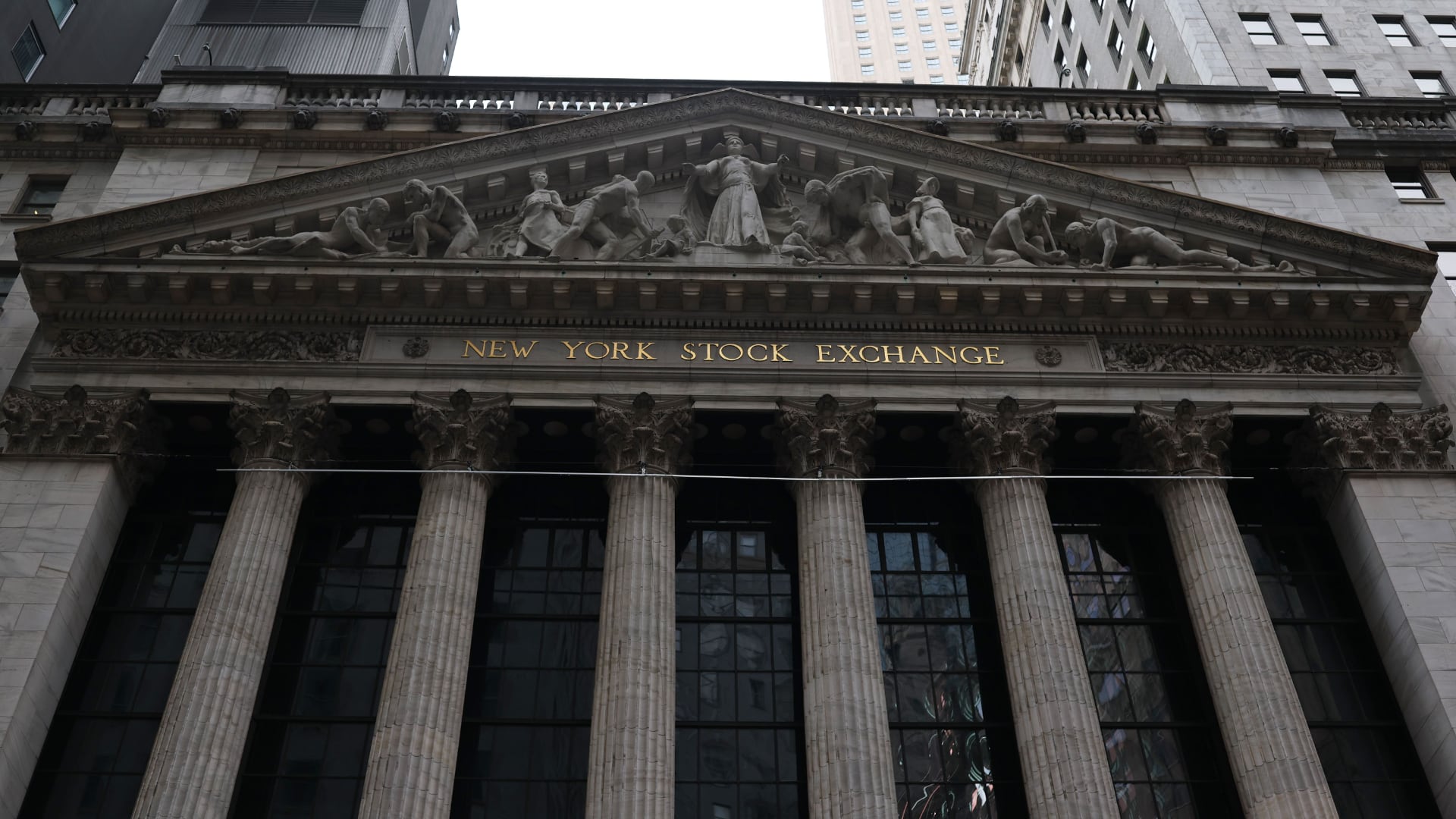By Stan Choe, Damian J. Troise, and Alex Veiga
Stock indexes ended a wobbly day with modest gains Thursday, while the biggest increases went to Amazon, Netflix and other companies poised to do the best during the coronavirus crunch. The S&P 500 rose 0.6% after flipping between small gains and losses all day. The latest dour report on the job market dampened sentiment after the government reported that 5.2 million workers filed for unemployment benefits last week. More stocks fell than rose as companies bound to suffer most from the virus-related shutdowns pulled back. That included banks, energy and industrial companies as well as small-company stocks. Bond prices rose, sending yields lower.
THIS IS A BREAKING NEWS UPDATE. AP’s earlier story is below:
Stocks are mixed in afternoon trading Thursday as the relatively few winners in the coronavirus crunch pull away from the rest of Wall Street.
The S&P 500 flipped between small gains and losses through the day, after the government reported that 5.2 million more Americans filed for unemployment benefits last week. The report was universally regarded as awful, and it brought the total for the last month to roughly 22 million. But markets had braced for a number that was even more awful, which helped to limit losses for stocks.
The S&P 500 was up 0.1%, as of 3:10 p.m. Eastern time. The relatively modest move belied more severe churning happening underneath. Gains for health care stocks, big tech companies and several retailers helped steady the S&P 500, even though losers in the index easily outnumbered the winners.
“We know the numbers are not going to be good, but companies can show they’ve taken steps to stop the cash drain or that they’ve positioned themselves well,” said Sal Bruno, chief investment officer at IndexIQ.
Amazon, Dollar General, and Walmart were all close to record highs as people stock up on staples. Netflix and video-game companies Activision Blizzard and Electronic Arts are also at all-time highs as people spend more time than ever at home.
The losers in the coronavirus pandemic, meanwhile, took yet more hits. United Airlines sank 12% for one of the worst slides in the S&P 500 after its CEO told employees that demand for travel “is essentially zero and shows no sign of improving in the near term.”
As a sector, financial stocks weighed heaviest on the market with banks continuing their weeklong slide. Worries are high that business-shutdown orders — and the punishing sweep of layoffs they’re causing — will force households and businesses to default on billions of dollars of loans. Bank of America lost 4.3%, and Wells Fargo slid 6%.
Energy companies and companies that own shopping malls were also hard hit as people stay at home amid efforts to slow the spread of the virus. Simon Property Group lost 14%, and Noble Energy fell 8.4%.
Analysts see the separation of winners and losers as an encouraging sign for the market. Earlier in the sell-off, which began in February, fears about the impending recession pulled the plug for stocks across sectors.
“We had a market that was dotted with indiscriminate selling,” said Quincy Krosby, chief market strategist at Prudential Financial. “Now you have a differentiation within the market, which indicates a healthier backdrop.”
Treasury yields fell again and remain extremely low, which shows how pessimistic investors are about the economy’s prospects.
Markets are still unsettled following a downdraft Wednesday, when the S&P 500 fell 2.2% following reports on the economy that were worse than investors were expecting, including a record drop for U.S. retail sales last month.
Thursday’s meandering trading offered a milder microcosm of the up-and-down lurches that stocks have been cycling through in recent weeks as traders try to guess how long and how deep the upcoming recession will be.
On one hand, investors see the severe economic damage caused by the pandemic. Besides the jobless report, data released Thursday showed that homebuilders broke ground on fewer homes than expected last month. A survey of manufacturers in the mid-Atlantic region fell below the low point during the Great Recession.
On the other hand, some optimistic investors are focusing on massive aid for the economy promised by the Federal Reserve and the U.S government. They also point to recent signs that the outbreak may be leveling off in some of the world’s hardest-hit areas, which could open the path to reopening parts of the economy.
The dueling sentiments have helped the S&P 500 nearly halve its loss since falling from its record high in mid-February. Stocks were down by nearly 34% in late March, but a recent rally has trimmed the loss to roughly 18%.
Daily swings have also become milder in recent weeks. The Dow Jones Industrial Average bounced between a gain of 62 points and a loss of 292 points before sitting at 23,418 in afternoon trading, down 86 points or 0.4%. But that’s nothing like the 2,000-point swings it was shuddering through last month.
“What that tells me is that we’re not all clear, markets can still go down, but hopefully we’ve seen the worst of the panic situation,” said Bruno.
The Nasdaq was up 1%, but the Russell 2000 index of small-company stocks was down 1.7%.
Ultimately, many professional investors say they expect the market to remain volatile until the worst of the outbreak passes.
“This is a consumer-led economy,” said Prudential’s Krosby. “The question is: At what point does the consumer feel comfortable enough to begin even a quasi-normal life outside their homes?”
In Europe, Germany’s DAX rose 0.2%, France’s CAC 40 slipped 0.1% and the FTSE 100 in London added 0.5%.
In Asia, Japan’s Nikkei 225 fell 1.3%. Hong Kong’s Hang Seng dropped 0.6%, and the Kospi in South Korea slipped 0.1%.
The yield on the 10-year Treasury fell to 0.60% from 0.64% late Wednesday. Yields fall when bond prices rise. Investors tend to bid up Treasurys when they’re worried about the economy.













